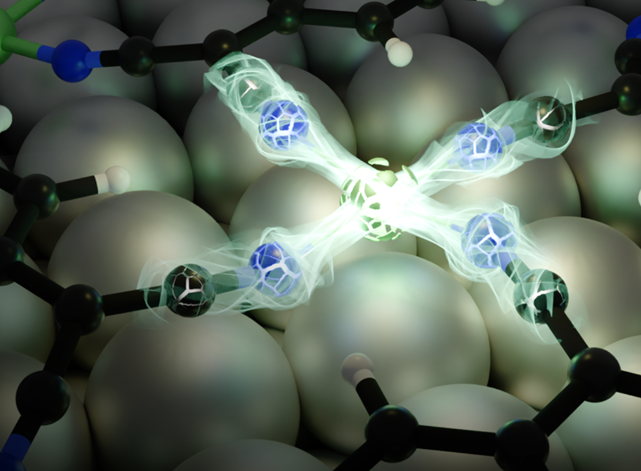Two-dimensional metal-organic frameworks (MOFs) are self-assembling materials just a single atomic layer thick. Their customizable nature makes them ideal for a variety of future technologies. Researchers are intensively studying MOFs, particularly for their potential in photovoltaics and spintronics - a technology that could form the basis for the next generation of computers.
As part of his doctoral thesis at the Institute of Physics, Dominik Brandstetter, along with Professor Puschnig's team and colleagues from Forschungszentrum Jülich in Germany, has uncovered the key bonding mechanism that gives these materials their structure. Using photoemission orbital tomography, he visualized how the electron clouds of metals and organic molecules rearrange to forge stable covalent bonds.
While these bonds have been predicted by quantum mechanics for decades, proving their existence inside MOFs required a combination of high-precision photoemission spectroscopy and advanced quantum mechanical calculations. The measurements were conducted at the Synchrotron Light Source in Trieste, with simulations run at the Austrian Scientific Computing Center. This powerful combination allowed the team to directly observe the bond for the first time within a MOF network made of nickel atoms and TCNQ molecules.
The study not only shows the characteristic energy splitting, which provides insight into individual energy levels, but it also clarifies how the network's symmetry influences the properties of the newly formed states. This detailed understanding of the electronic structure is essential for tailoring the properties of future 2D materials through precise atomic adjustments - a critical step in the deliberate design of functional materials.
The research was funded in part by the European Research Council Synergy Grant "Orbital Cinema."
D. Brandstetter, S. Mearini, A. Windischbacher, Y. Y. Grisan Qiu, D. Baranowski, V. Feyer, C. M. Schneider, P. Puschnig
Revealing the Character of Coordination Bonding in 2D Metal-Organic Frameworks.
Advanced Science, 7th October 2025, https://doi.org/10.1002/advs.202510414
